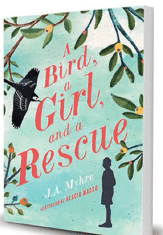Mark Twain wrote, “Travel is fatal to prejudice, bigotry, and narrow-mindedness, and many of our people need it sorely on these accounts. Broad, wholesome, charitable views of men and things cannot be acquired by vegetating in one little corner of the earth all one’s lifetime.” While we might agree with Twain, the salaries many of us earn do not. Few of us will be able to replicate his transcontinental stagecoach journeys or his overseas adventures in Africa, Europe, and the Holy Land.
But we can read.
Through reading we can enter cultures vastly different from ours. We can feel the plight of people who might long to walk in our shoes even on our worst days. We can cheer for protagonists who live on the wrong sides of the tracks, or the globe.
Through reading we learn, often unexpectedly, that characters who seem worlds apart from us share our struggles and fears—even our virtues. They, like us, lay their heads on their pillows (or bamboo mats) at night wondering if they have made a difference in the world. As we try to answer that question with them—sometimes agreeing, sometimes disagreeing—Twain’s ugly threesome of prejudice, bigotry, and narrow-mindedness starts to suffocate.
And if reading books can make us better traveled, reading fiction can often take us into the deepest jungles of unfamiliarity better than any other type of literature. Fiction encourages us to savor truth without choking on facts. In an unexpected way, fiction can, in turn, help us grapple with facts by fortifying our hearts and awakening the creative parts of our minds. Through fiction our thoughts and feelings embark on the kinds of travels Dr. Twain prescribed.

J. A. Myhre’s A Bird, a Girl, and a Rescue (New Growth Press, 2016) is a traveling book. It brings us to a part of the world few of us will ever visit in the flesh. And, in a way that no news soundbite can, we are confronted with the unfamiliar realities of African boarding schools, rebel attacks, juvenile abduction, predatory animals, and illegal deforestation. The book’s illustrations are starkly inelegant; in other words, the perfect style for the story. They feel like they could have been borrowed from a wall display at the rural boarding school that provides one of the settings of the story. As the author and illustrator firmly plant our own feet in the rich African soil, these problems become ours. We cannot face these issues like we would if we were reading a newspaper; we are part of the story!
If the book sometimes feels rushed, the brisk pace only adds to the gritty tension of the plot. Our inability to understand fully the heavenly messengers who help the protagonist through her challenges reflects the mystery of God’s “ministering spirits” (Heb. 1:14). Even as we (might) disagree with the decision of the main character—an early adolescent girl named Kiisa—to embark on a perilous journey alone, we are struck by how our respective contexts help interpret virtues like fear and valor. As with most well-written juvenile literature, this story is meant for young adults, but adults traveling with them will be thankful for the ride.
A Bird, a Girl, and a Rescue can’t replace a trip to rural Africa. But for one percent of the cost of an airline ticket it is a highly recommended stand-in.
Rev. William Boekestein is the pastor of Immanuel Fellowship Church in Kalamazoo, MI. His most recent book, for young readers, is Shepherd Warrior, a dramatized retelling of the life of Reformer Ulrich Zwingli.
